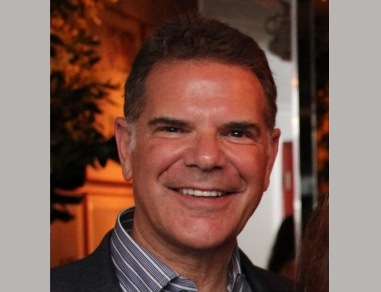Can a Romney Presidency Connect with Young People? NO!

Can a Romney Presidency connect with and be embraced by the 21 million first-time voters and future generations that will soon dominate the political landscape? The answer is a resounding no, according to research and interviews conducted for my new book Hooked Up: A New Generation's Surprising Take on Sex, Politics and Saving the World. But instead of sharing that response in polls and surveys, these young people likely to offer a disconnected or even semi-perturbed, "IDK, I don't know…"
Try it. Ask an 18- to 22-year- old questions about politics, issues, their future and there's a high probability his or her answers will be interspersed with "I don't know." It's not just a verbal habit like "you know." They prefer to avoid conflict and are wary about how their opinions will be received. They are wary of the polarized hostility they have observed throughout their young lives in the political climate, so they preface their opinions with a declaratory IDK. In fact, most have pretty well-informed points of view about a wide-ranging spectrum of issues and reasonably clear perspectives on the issues that are dominating the political debates. They are focused, aware, engaged and active. They are also tolerant of those with whom they disagree and are willing to listen to and consider opposing opinions.
political climate, so they preface their opinions with a declaratory IDK. In fact, most have pretty well-informed points of view about a wide-ranging spectrum of issues and reasonably clear perspectives on the issues that are dominating the political debates. They are focused, aware, engaged and active. They are also tolerant of those with whom they disagree and are willing to listen to and consider opposing opinions.
First-time voters in this year's presidential election have been impacted by growing up completely within a heavily charged and often negative political environment. They spent most of their early years during the presidency of William Jefferson Clinton and their teen years under President George W. Bush. For them, the presidency carries less gravitas as a result of the barrage of political attacks that marked both presidencies and that has intensified during the term of President Barack Obama. While presidents have always been the target of political dogma and hostility, the extraordinary attacks that now dominate the political landscape have turned off first-time voters. Similarly, they have low tolerance for the political debate and discourse that has polarized social issues and economic policies throughout their young lives. Yet they intend to participate in the political process. Only 10 percent say they do not plan to vote in this presidential election. In our survey of 1,000 first-time voters who declared a political affiliation, 73 percent identify themselves as progressive or moderate, compared to 27 percent who say they are politically conservative. On most issues, only a small minority of first-time voters has yet to form an opinion. Young voters have formed a clear and relatively cohesive voting bloc that will increasingly inform the politics of the nation. They hold the promise of being the most politically active generation in nearly five decades, yet they are more unlikely to aggressively campaign for their candidates or for their positions. For this we have to thank lobbyists, political attack dogs, the 24-hour news cycle that rewards and champions controversy over discourse, liars in the news media and in public office, a politicized court system, and the polarization and partisanship that accompanies discussion of almost every issue that is debated in elections at all levels.
Young people's life-long online immersion is likely to influence them to vote for those who connect most effectively on a one-to-one basis, who are honest and sincere in their opinions, are the least extreme, and who prove open and accepting of those with whom they don't agree. My survey, conducted by research firm Ipsos/OTX, discovered the following realities that will define and drive the future of American politics:
• There will continue to be polarization on most social and foreign policy issues, but the weight of the population will swing toward more progressive and moderate views.
• 73% of those who take an active position on foreign military intervention say we should get out of our current conflicts soon.
• Only 20% disapprove of same-sex marriage.
• 84% agree that women should have the right to terminate pregnancies in at least some instances, and 53% believe they should have the right in all instances if medically safe.
• Only 24% believe there should be no tax increases of any type.
• 59% believe the government should support health care for all people.
• 64% oppose changes to Medicare regulations that would delay their benefits to an older age.
• 86% believe global climate change is real.
• 60% support the legalization of marijuana in some form.
Young people are most likely to support candidates for political office who advocate smaller government; a strong but controlled military with a non-interventionist agenda; reduction of the dominance of the military-industrial complex; individual rights, including abortion, gay marriage, medical marijuana and limited gun control; and clearly defined economic policies that do not overly advantage the already wealthy. These voters are not anti-corporation but definitely are wary of government, Wall Street, large institutions, and over-regulation. They believe in individual rights but are less inclined to support active separation of states along politically-charged issues, believing that the nation is one and undivided, with liberty and justice for all.
They are progressive on most social issues, actively opposed to military intervention, balanced on gun control issues, and politically moderate on economic issues. When asked about interracial marriage and same-sex partnerships, Internet Pioneers almost seemed shocked that these topics are still being debated. They are overwhelmingly in favor of gay rights issues such as same-sex marriage, adoption and serving in the military.
Conservative politics and the politics of the vast majority of American youth are in direct conflict. A Romney presidency, as outlined in the Republican platform and in campaign speeches, promises to reject the fundamental beliefs of the generations that represent the future of our nation and our world. Simply, a Romney presidency and an advance of right-wing conservative politics will be a rejection of our future and an embrace of a past that young people can neither support nor understand.
Jack Myers is author of Hooked Up: A New Generation's Surprising Take on Sex, Politics and Saving the World, available atamazon.com,BN.comand all quality booksellers. This commentary is partially excerpted from the book.


